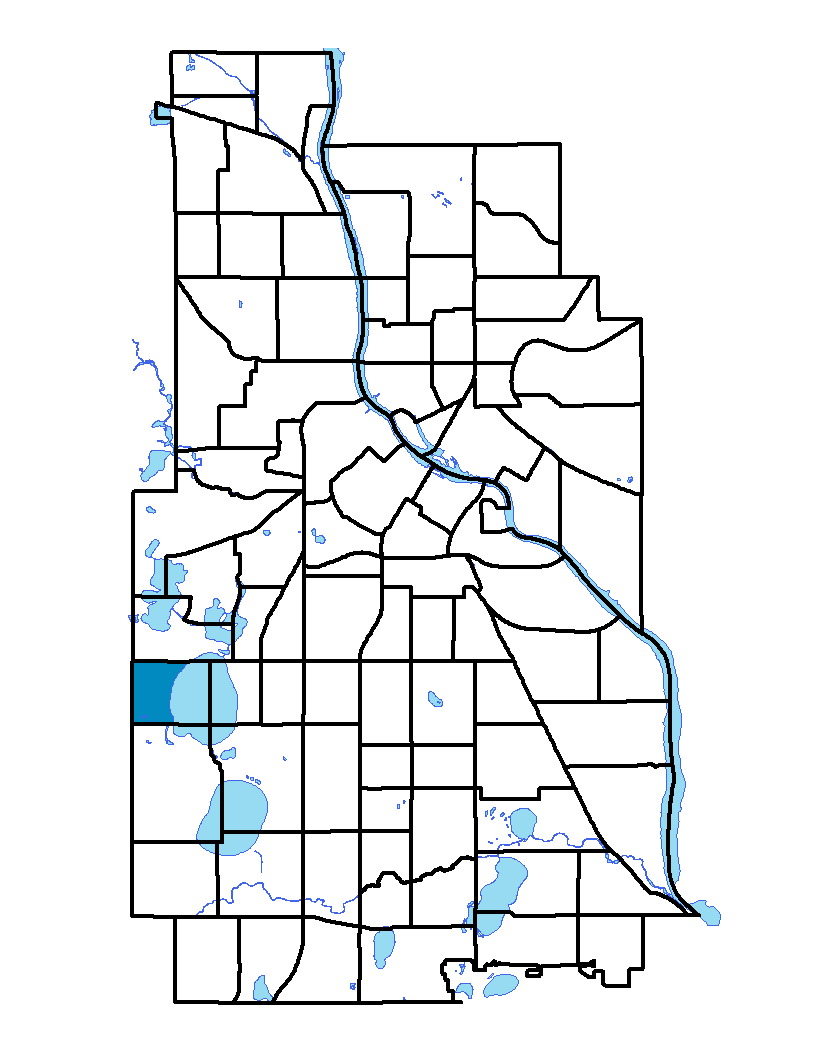West Calhoun is located on the western edge of Minneapolis in the Calhoun-Isles community. The neighborhood is bounded by France Avenue, Lake Street, Lake Calhoun and 36th Street. Lake Calhoun has gone through several name changes. Some Dakota people called the lake "Mde Ma-ka-ska," which means "Lake of the White Earth." This was because of the lake's sandy north shore. Later, early Europeans renamed the lake with another Dakota name, "Medoza," or loon. The current name comes from early surveyors who mapped the western lands in 1817. They named it after the secretary of war at the time, John C. Calhoun. Calhoun was also a congressman, senator, secretary of state and vice president. The Grand Rounds Scenic Byway borders Lake Calhoun, and the oldest country club in Minneapolis, the Minikahda Club, occupies most of the western and southern sections of the neighborhood.
To learn more about the neighborhood association visit: www.westcalhoun.org
Indicator Details
|
Indicators |
Primary Domain | Indicator Value | Rank | Tier |
|---|---|---|---|---|
| Access to Mainstream Financial Services | Economic Health | 11.8% | 12 | Top |
| Access to Parks and Open Space | Natural Areas | 5.5% | 44 | Middle |
| Adult Educational Attainment | Educational Opportunities | 98.2% | 13 | Top |
| Age of Housing | Housing | 81.8% | 32 | Middle |
| Blood Lead Levels in Children | Housing | -% | - | Data N/A |
| Business Retention | Economic Health | 6.7% | 8 | Top |
| Chronic School Absence | Health Systems and Public Safety | -% | - | Data N/A |
| Commute Mode Share | Transportation | 14.3% | 80 | Bottom |
| Employment Rate | Employment Opportunities | 79.6% | 5 | Top |
| Excessive Housing Cost Burden | Housing | 20.0% | 14 | Top |
| Food Desert | Neighborhood Characteristics | -% | - | Data N/A |
| High School Graduation Rate | Educational Opportunities | -% | - | Data N/A |
| Household Transportation Costs | Transportation | 15.5% | 25 | Top |
| Local Business Vitality | Economic Health | 62.4% | 18 | Top |
| Long-Term Unemployment | Employment Opportunities | 6.3% | 53 | Middle |
| Low Birth Weight | Health Systems and Public Safety | -% | - | Data N/A |
| Motor Vehicle Collisions | Health Systems and Public Safety | 9.3 | 56 | Middle |
| Offsite Alcohol Outlets | Neighborhood Characteristics | 1 | 6 | Top |
| Pedestrian Connectivity | Transportation | 90.3 | 73 | Bottom |
| Preschool Enrollment | Educational Opportunities | 56.9% | 33 | Middle |
| Preventable Hospitalizations | Health Systems and Public Safety | 1.3 | 8 | Top |
| Proximity to Brownfield Sites | Environmental Hazards | 17.6% | 67 | Bottom |
| Proximity to Superfund Sites | Environmental Hazards | 0.0% | 1 | Top |
| Public Assisted Households | Employment Opportunities | 11.0% | 29 | Top |
| Reading Proficiency | Educational Opportunities | -% | - | Data N/A |
| Residential Mobility | Social Cohesion | 70.4% | 66 | Bottom |
| Residential Proximity to Traffic | Environmental Hazards | 0.0% | 1 | Top |
| School Proximity to Traffic | Environmental Hazards | -% | - | Data N/A |
| School Readiness Scores | Educational Opportunities | -% | - | Data N/A |
| Toxic Releases from Facilities | Environmental Hazards | 0.0% | 1 | Top |
| Transit Accessibility | Transportation | 352.7 | 37 | Middle |
| Travel Time to Work | Employment Opportunities | 21.5 minutes | 29 | Top |
| Tree Cover | Natural Areas | 32.7% | 18 | Top |
| Vacancy Rates | Housing | 8.2% | 50 | Middle |
| Violent Crime | Health Systems and Public Safety | 44.8 | 41 | Middle |
| Voter Participation | Social Cohesion | 25.5% | 44 | Middle |
| Walkability | Neighborhood Characteristics | 68 | 31 | Middle |

